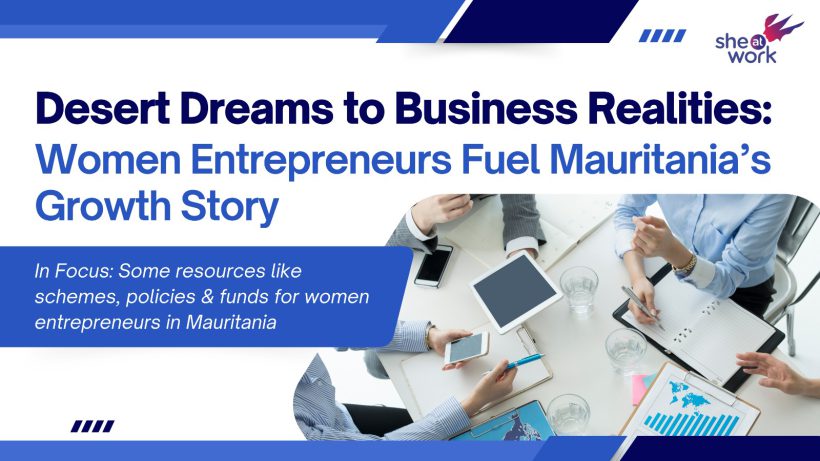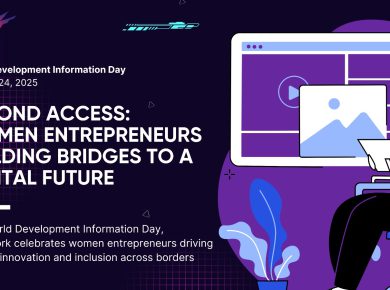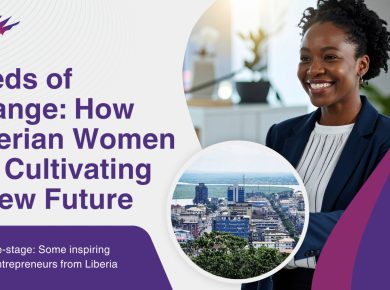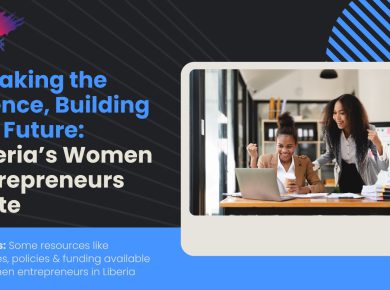In Focus: Some resources like schemes, policies & funds for women entrepreneurs in Mauritania
#MauritaniaSMEs #HerBusinessJourney #EconomicEmpowerment #AfricaRising #SHEconomy #MauritaniaRise #DesertDreams #EmpowerHer #AfricaEntrepreneurs
Known as “The Land of the Moors,” Mauritania is a vast, diverse country situated in the North-Western Saharan desert. What is unique is that this is a place, where resilience defines its people and resourcefulness drives its entrepreneurs. Despite its immense natural wealth & cultural heritage, the country continues to face socio-economic challenges that disproportionately affect women. Hence poverty, limited access to education & early marriage exist widespread, with only 47.3% of people having access to electricity as of 2020! Women, in particular, face systemic barriers to economic participation, yet they continue to play an essential role in agriculture, trade, and small enterprise development.
Small and medium-sized enterprises (SMEs) account for nearly 80% of Mauritania’s economic fabric, generating close to half of all jobs. However, women-led businesses often encounter hurdles in accessing finance, training, and market opportunities. According to the Global Findex 2018, only one in five Mauritanians has a financial account, and women are even less likely to benefit from formal financial services. Climate shocks such as recurring droughts further compound these vulnerabilities, highlighting the urgent need for economic resilience and innovation.
Women in Mauritania are Lighting Up the Future of Entrepreneurship
Fortunately, to address these challenges, several organizations are indeed, stepping up. Institutions such as the African Development Bank, the United Nations Economic Commission for Africa, and the Mauritanian Women’s Business Council (CMFA) are providing critical resources for women entrepreneurs. From microfinance and capacity-building initiatives to mentorship and digital literacy programmes – these platforms are helping women strengthen their enterprises, access new markets and build sustainable livelihoods. Thus, they are paving the way towards inclusive growth and economic independence in The Land of the Moors.
Now let us focus on some resources like schemes, policies and funding for women entrepreneurs in Mauritania.
- The African Development Bank
What is really forward-looking is that The African Development Bank Group’s Ten-Year Strategy 2024-2033 is based on a positive outlook – about Africa’s potential to significantly improve its societies, economies & the quality of life for its people. After having experienced a prolonged period of economic growth over the last two decades, now it look like Africa can create sustained growth over the next decade, drive transformation, and contribute towards critical global solutions. And, its progress will be driven by its unique assets: a young and dynamic workforce, growing urban consumer markets, integration of national economies, substantial clean energy potential and extensive natural resource wealth.
The Bank will focus on tackling regional & global challenges that cross national borders, such as – climate change, health crises & economic instability by expanding public and private sector operations. And it aims to triple private sector financing by 2033 while enhancing domestic and international resource mobilization and attracting private finance – particularly for MSMEs led by women & youth. Additionally, the Bank plans to increase its financing capabilities, responding to demands for more efficient use of MDB balance sheets.
The AfDB is advancing Africa’s development through its “High 5” priorities, targeting critical sectors for transformative growth: Light-up and Power Africa, Feed Africa, Industrialize Africa, Integrate Africa, and Improve the Quality of Life for the People of Africa. This approach aligns with Africa’s core development needs and leverages the Bank’s strength in delivering impactful investment projects.
To unlock the transformative potential of the High 5s, the Bank will focus on several overarching priorities: promoting gender equality; investing in the youth; addressing and mitigating climate change; enhancing resilience to shocks, fragility, and conflict; and reinforcing economic governance.
- The Mauritanian Women’s Business Council (CMFA)
An organization dedicated to promoting women’s entrepreneurship and business leadership in Mauritania, is The Mauritanian Women’s Business Council (CMFA). Their aim is – to support women entrepreneurs through training and resources; to advocate for policies that enhance women’s participation in the economy & foster networking opportunities among women in business.
What are its mission and objectives?
Through its activities, the Mauritanian Council for Businesswomen aims to:
– Empower Mauritanian women and their participation in the Finance and Business Market;
– Link businesswomen with decision-makers;
– Create networks and ties with businesswomen at the global level;
– Enhance the participation of businesswomen in regional and international exhibitions;
– Create a framework to support the marketing of businesswomen´s products
– Organize events encouraging women’s work in cities and rural areas;
– Hold conferences highlighting the importance of gender equality;
– Conduct awareness campaigns on women’s rights; and
– Encourage the active participation of women in political life.
https://www.euromedwomen.foundation/pg/en/profile/ermwf.tabida19
- The World Bank Group – the Kosmos Innovation Challenge
The World Bank Group supports entrepreneurship through various initiatives, including the Kosmos Innovation Challenge. This programme focuses on fostering innovation and business development in emerging markets.
Kosmos Innovation Challenge Overview
The objective is – to identify and support innovative business ideas that address local challenges.
As far as incubation support goes, it provides resources and mentorship to help entrepreneurs refine their business models.
In Business Plan Development, it assists participants in creating viable business plans that can attract investment.
The World Bank Group offers other entrepreneurship programs aimed at enhancing access to finance, training, and market opportunities for startups.
And, these initiatives aim to stimulate economic growth and job creation in developing countries by empowering local entrepreneurs.
The Bank Group has provided financial support for earlystage start-ups – through venture capital funds as well as loans and grants to innovative and entrepreneurial companies and SMEs. World Bank financing support for start-ups has mainly focused on matching grants, and a few projects have included venture capital funds.
Relative to the Bank, IFC has invested more in venture capital funds and other private equity funds that focused on early-stage companies and innovative SMEs, providing them with equity capital as well as managerial expertise, market information & other forms of technical assistance.
https://ieg.worldbankgroup.org/mar/world-bank-group-support-innovation-and-entrepreneurship-0
- Kosmos Energy
Kosmos Energy makes strong social investments through the Kosmos Innovation Center (KIC) programmes in Ghana, Senegal & Mauritania. These programmes reflect the belief that by nurturing the next generation of entrepreneurs and facilitating innovation in sectors beyond oil and gas, they can meaningfully contribute to the creation of healthier and more diverse economies in host nations. The KIC provides expert training, mentorship & seed funding through customized programmes led by local experts.
Opening up Opportunities in Mauritania
The flagship programme at KIC Mauritania is the annual Innovation Challenge. The programme targets entrepreneurs under 40, who operate early-stage startups, providing them with several months of business training and mentorship. Its success was a key factor in KIC Mauritania being recently nominated for the US Secretary of State’s annual Award for Corporate Excellence.
The most recent Challenge featured 16 businesses in either the prototyping or early stages of operation. And the winners represented sectors including fashion, the arts, computer training and technology apps.
Encouraging more Women to Participate
Since 2018, KIC Mauritania has trained 400+ young entrepreneurs, supported 96 startups, but they are always looking to improve. After noticing a decline in female participation, Kosmos engaged with local stakeholders through surveys and focus groups – to understand and address the cause. Feedback indicated that the KIC could consider providing enhanced support for women, such as targeted recruitment, flexibility for caregivers and an introductory session on entrepreneurship to inspire and build confidence.
So, in 2019, KIC Mauritania launched the first Women’s Bootcamp. Over the course of seven days, female entrepreneurs received in-depth training on skills and background knowledge needed to develop their ideas, including the entrepreneurship cycle, interpersonal skills, and business analysis. The Women’s Bootcamp successfully increased female participation in the Innovation Challenge by 20 percent, and one of the most recent winners of the Challenge is a Bootcamp graduate.
Launching the Ra’idat Programme
In 2023, the Women’s Bootcamp transitioned into an independent two-month programme called Ra’idat (the Arabic feminine plural for leaders or pioneers). The goal of Ra’idat is – to provide additional support and resources for women entrepreneurs, including seed funding. Participants receive training on market research, price refinement and pitch development, among other topics, and are encouraged to take advantage of networking opportunities made available throughout the programme.
Now, Kosmos looks forward to continuing this groundbreaking programme and subsequently, help more women contribute to participating in and strengthening the economy of Mauritania.
- Ra’idat 2025 showcased Mauritania’s Top Women Entrepreneurs
DAI’s mission is to make a lasting difference in the world – by helping people improve their lives. They envision a world in which communities and societies become more prosperous, fairer and better governed, safer, healthier & environmentally more sustainable.
Four standout women-led businesses secured seed funding at the conclusion of the 2025 Ra’idat entrepreneurship programme at the DAI-implemented Kosmos Innovation Center (KIC) Mauritania.
The programme was initially established – to boost women’s participation in KIC Mauritania’s flagship Mauritania Innovation Challenge (MIC), which empowers the next generation of business leaders in Mauritania through a rigorous program of training and development for young entrepreneurs. To address the low number of women applying for the programme, in 2019 MIC organizers launched a bootcamp to support women’s entrepreneurial skills.
In 2023, Ra’idat became a standalone programme dedicated to strengthening female entrepreneurs’ skills and providing opportunities to launch and grow their businesses through targeted training and mentorship.
This year in 2025, the programme received more than 300 applications, and 10 finalists were selected from diverse sectors including education, technology, food and drink, and fashion. These female entrepreneurs completed a comprehensive curriculum covering – product development, go-to-market strategies, financial management & pitching.
The programme culminated in a live pitch event before a panel of expert judges from the banking, entrepreneurship, and innovation sectors. Finalists were evaluated on the value proposition, market potential, and financial feasibility of their product or service, as well as the technical capabilities and strength of their team.
https://www.dai.com/news/raidat-2025-showcases-mauritanias-top-women-entrepreneurs
- WACA empowers women entrepreneurs in Mauritania
In Mauritania, beyond its solutions to coastal erosion, WACA funds social projects that help empower communities. In Mauritania, the project funded US$16,000 for the creation of a sardine canning unit for the Mauritanian Women’s Business Council (CMFA). This has enabled this women’s group to produce quality canned goods, to compete in international markets, and of course, to increase their income.
The CMFA is an association that advises, supports, monitors & supervises women who work in various fields such as – agriculture, market gardening, livestock, fishing, cosmetics, etc. Created in 2017, it trains women on specific topics, helps them design projects and submit them to donors for funding. Additionally, its audience of 20,000 followers on Facebook allows CMFA to amplify its messages and gather advice and ideas from its members. Besides providing assistance and advice, the CMFA is also involved in social projects. It is within this framework that it benefited in 2021 from the financing of the WACA project for the establishment of a sardine canning unit.
The first tranche of funding from the WACA project, amounting to 130,000 MRU (US$3700), allowed for the purchase of an automatic seaming machine and the ordering of 11,500 cans. The other two instalments to come will allow the acquisition of equipment and the start-up of the unit.
The CMFA hopes to market its products first in Mauritania and then to expand into the sub-regional markets. The CMFA is optimistic about the success of its project, which could inspire other women in a country where there is no shortage of opportunities to create small and medium-sized projects. This WACA Mauritania social project deserves special attention and encouragement to ensure its sustainability.
https://www.wacaprogram.org/article/waca-empowers-women-entrepreneurs-mauritania
- ECA Assists Young, Women Entrepreneurs in Mauritania in Seizing Opportunities within the Framework of the AfCFTA
On 8-11 July 2025The ECA Office for North Africa held in Nouakchott (Mauritania) a capacity-building workshop for the benefit of Mauritanian youth and women-led SMEs, under the theme: “Capacity building for youth, women led SMEs within the framework of the AfCFTA”.
ECA held the meeting in partnership with the division of planning of the Ministry of Youth Empowerment, Employment, Sports and Civic Service, the Ministry of Economy and Finance and the “Vadaat el aamal” programme, a support and specialized services platform dedicated to innovative project holders under the Ministry of Employment and Vocational Training.
SMEs are key pillars of the Mauritanian economy where they account for about 80 percent of the national economic fabric, contribute 30 percent of GDP and 45.8 percent of jobs.
The 8-11 July workshop is a continuation of two online trainings, held on 26 June and 3 July. It also part of a series of workshops scheduled for the benefit of Mauritanian, Libyan and Tunisian entrepreneurs between June and September 2025.
The plan was that the four-day workshop enabled participants to study topics such as accessing African markets and identifying target markets; the AfCFTA and opportunities it can provide Mauritanian businesses with; designing export strategies; accessing finance; financial and export risk management; and how to use digital technology to increase exports. Participants were also made familiar with concepts such as the circular economy and climate risk management, and they also learnt about existing opportunities to benefit from sustainable and green economy grants and loans.
This initiative was a continuation of the capacity-building workshops held for the benefit of women business leaders in Libya, Mauritania & Morocco since 2023. It also aims to contribute to the implementation of Sustainable Development Goals 5 (Gender Equality), 8 (Decent Work and Economic Growth), 9 (Industry, Innovation and Infrastructure), 12 (Responsible Consumption and Production), and 13 (Climate Action).
- Some Organizations Helping Women & Children in Mauritania
- Association of Female Heads of Households (AFCF): This organization advances women’s and children’s rights in Mauritania by focusing on reform laws and preventive policies. Together with the Women’s Learning Partnership, it is able to help all people by passing effective legislation.
AFCF focuses on campaigning for reform laws that prevent trafficking, violence, abuse and slavery, which predominantly affect women and children. AFCF was very successful in its campaign to implement gender quotas in the Mauritanian parliament. AFCF’s programmes directly supported the “election of 99 women including 6 women mayors, a female head of the Urban Community of Nouakchott and dozens of women ministers.” There is a growing amount of slavery prevention groups in West Africa that the organization has been able to support.
- Mauritanian Council for Business Women: This organization advances women’s economic mobility. It encourages participation in the business and finance sectors. It gives women business owners the opportunity to present themselves at regional and local exhibitions.
Its goal is to promote further gender equality by encouraging female entrepreneurship. The organization also conducts campaigns for equality politically. By encouraging stronger relations for women in business and by giving women a platform to expand their businesses, women and children in Mauritania receive greater opportunities and are less likely to experience the inequalities both groups may face.
- Tweeza microcredit programme
This programme provides small loans to groups of women to help them start businesses, especially in Mauritania’s larger cities. It has been shown to increase the buying power of participants.
- SME Programme
The Sub-Regional Office for North Africa of the United Nations Economic Commission for Africa (ECA-SRO-NA) collaborated with Mauritania to develop a tailored SMEs Programme that was rolled out to more than 40 SMEs during the period (2024-2025).
This programme is anchored within the second pillar of the logical framework for employment developed by the Ministry of Youth Empowerment, Employment, Sports, and Civic Service of Mauritania, specifically supporting small and medium-sized enterprises. The first pillar is active employment policies, and the third one is boosting job supply and demand. The programme focuses on addressing the challenges of Mauritania’s entrepreneurial ecosystem through an integrated approach that builds on four essential pillars.
The programmne includes pre- and post-training evaluation questionnaires, two introductory webinars, and in-person sessions that comprise technical presentations, case studies, and practical workshops.
https://www.uneca.org/stories/%5Bblog%5D-empowering-women-and-youth-led-smes-in-mauritania
- Women’s Empowerment Principles (WEPs)
The Women’s Empowerment Principles (WEPs) are a set of Principles offering guidance to business on how to advance gender equality and women’s empowerment in the workplace, marketplace and community. Established by UN Women and UN Global Compact, the WEPs are informed by international labour and human rights standards and grounded in the recognition that businesses have a stake in, and a responsibility for, gender equality and women’s empowerment.
WEPs are a primary vehicle for corporate delivery on gender equality dimensions of the 2030 agenda and the United Nations Sustainable Development Goals. By joining the WEPs community, the CEO signals commitment to this agenda at the highest levels of the company and to work collaboratively in multistakeholder networks to foster business practices that empower women.
Thus, Mauritania is helping its tens of thousands of urban poor – by creating job opportunities where there once were none. A microfinance programme is giving small loans to inner city residents to start small businesses, most of them run by women.
- ESCWA
Regional Initiative on Renewable Energy (REGEND) – The Economic and Social Commission for Western Asia (ESCWA) runs a capacity-building program for rural women in Mauritania on renewable energy and sustainable agricultural practices, supported by the Islamic Development Bank.
Within the framework of the Regional Initiative to Promote Small-Scale Renewable Energy Applications in Rural Areas of the Arab Region (REGEND), and with funding from the Islamic Development Bank (IsDB), ESCWA organized a 10-day capacity-building workshop in January 2025 for rural women in Mauritania on the topics of renewable energy, agriculture, clean cooking, rural development, women empowerment, and the water-energy-food (WEF) nexus, in partnership with the Arab Organization for Agricultural Development (AOAD), and with support from the Ministry of Agriculture and Food Sovereignty in Mauritania.
The objective of the programme was to empower rural women and young people in Mauritania and to advance good agricultural, food and energy practices based on the sustainable use of natural resources for enhanced understanding of the WEF nexus and sustainable development.
It builds upon REGEND’s knowledge products and successful capacity-building activities in Algeria, Jordan, Lebanon, and Tunisia, in addition to REGEND’s online learning course.
Economic and Social Commission for Western Asia
ESCWA is one of five regional commissions under the jurisdiction of the United Nations Economic and Social Council. The role of the Commission is to promote economic and social development of Western Asia through regional and subregional cooperation and integration.
ESCWA was established in 1973 to stimulate economic activity in member countries, strengthen cooperation between them, and promote development. Committed to the 2030 Agenda, ESCWA’s passionate team produces innovative knowledge, fosters regional consensus and delivers transformational policy advice.
https://www.unescwa.org/events/capacity-building-rural-women-mauritania
- First edition of the “EmpowHer”, a Women’s Entrepreneurship Forum
The Diplomatic Academy of Mauritania in Nouakchott hosted in April 2024, the first edition of the EmpowHer, Women’s Entrepreneurship Forum, organized by the Investment Promotion Agency in Mauritania (APIM) in partnership with CWP Global and UNDP.
Under the presidency of HEM Abdessalam Ould Mohamed Saleh, Minister of Economy and Sustainable Development, leaders, entrepreneurs and experts gathered to discuss the opportunities and challenges of female entrepreneurship in Mauritania. Live discussions took place with experts in panels covering success stories, digital strategies, incubation programs, as well as financing options. At the end of this event, a detailed report containing recommendations was to be developed to ensure follow-up and concretize the achievements.
This initiative reflects APIM’s commitment to inclusiveness and improving the business climate in the country, thus consolidating the position of women entrepreneurs in the Mauritanian economic fabric.
The Investment Promotion Agency (APIM) is the one-stop-shop for investors: from business registration that takes 1 to 2 days, to the completion of all administrative formalities, the investor is taken care of from A to Z in one place.
The Mauritania Investment Promotion Agency (APIM) is a public administrative institution that implements the national policy in the field of the promotion of investments.
Their objective is to put in place mechanisms to increase the country’s productive capacity, job creation and income generation for the welfare and prosperity of the citizens.
If you are a national or foreign investor, APIM facilitates your access to the Mauritanian market thanks to its transversal structures in connection with the administrations, public and private organizations concerned.
What is their mission?
- To position Mauritania as an attractive investment destination
- To create investment opportunities especially in the productive sectors
- To assist investors in the administrative procedures for the realization of their investment projects including the benefit of the advantages of the code of Mauritanian investment code.
- To ensure the follow-up of the realization of investment projects and the execution of the commitments subscribed by the companies approved to the investment code
- To advocate for the improvement of a general climate conducive to investments particularly on regulatory aspects










